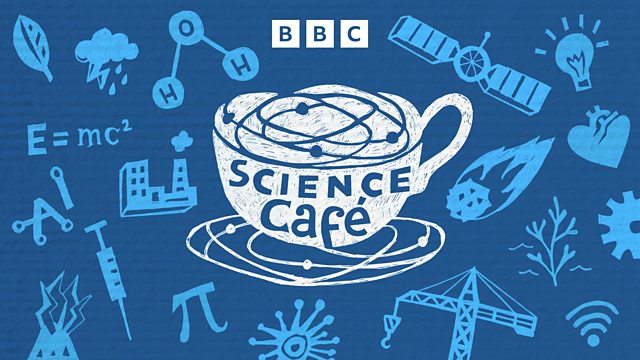Main content

18/10/2016
Series exploring the science and technology stories making the headlines. Adam Walton finds out about the important role of seagrass in the world's oceans.
Last on
Sun 23 Oct 2016
06:31
Βι¶ΉΤΌΕΔ Radio Wales
Seagrass
Adam Walton finds out about seagrass, which forms underwater "meadows" and plays a vital role in the ecology of the oceans.
Seagrass, not to be confused with seaweed, is an underwater flowering plant that thrives in saltwater environments, and provides important sheltering grounds for juvenile fish and other creatures. It is also incredibly efficient at capturing and storing carbon.
Adam is joined by Dr Richard Unsworth, a bioscientist based at Swansea University, and Ben Jones, from the Sustainable Places Research Institute at Cardiff University. They explain the importance of seagrass and how it is declining due to poor water quality and pollution. But also, there is some hope for improvements as governments and agencies are persuaded to monitor water quality and become aware of the crucial role it plays in sustaining fish stocks and stabilising the ocean bed environment.
We also hear from Dr Johan Eklöf, of the Department of Ecology, Environment & Plant Sciences at Stockholm University, who has been researching the importance of bio-diversity for the preservation of healthy seagrass.
Len McKenzie from James Cook University in Queensland, Australia explains his work with seagrass on the Great Barrier Reef, and the role of seagrass meadows as a vital resource for dugongs and turtles.
We also have music. A song called "Seagrass Blue Carbon Blues", written and performed by Bill Dennison of the University of Maryland's Center For Environmental Science.
Seagrass, not to be confused with seaweed, is an underwater flowering plant that thrives in saltwater environments, and provides important sheltering grounds for juvenile fish and other creatures. It is also incredibly efficient at capturing and storing carbon.
Adam is joined by Dr Richard Unsworth, a bioscientist based at Swansea University, and Ben Jones, from the Sustainable Places Research Institute at Cardiff University. They explain the importance of seagrass and how it is declining due to poor water quality and pollution. But also, there is some hope for improvements as governments and agencies are persuaded to monitor water quality and become aware of the crucial role it plays in sustaining fish stocks and stabilising the ocean bed environment.
We also hear from Dr Johan Eklöf, of the Department of Ecology, Environment & Plant Sciences at Stockholm University, who has been researching the importance of bio-diversity for the preservation of healthy seagrass.
Len McKenzie from James Cook University in Queensland, Australia explains his work with seagrass on the Great Barrier Reef, and the role of seagrass meadows as a vital resource for dugongs and turtles.
We also have music. A song called "Seagrass Blue Carbon Blues", written and performed by Bill Dennison of the University of Maryland's Center For Environmental Science.
Broadcasts
- Tue 18 Oct 2016 18:30Βι¶ΉΤΌΕΔ Radio Wales
- Sun 23 Oct 2016 06:31Βι¶ΉΤΌΕΔ Radio Wales

